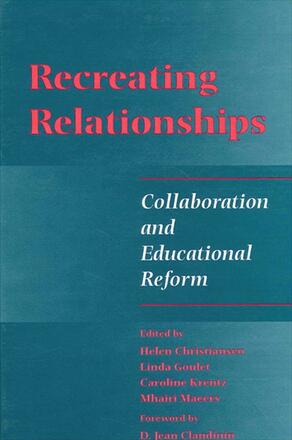
Recreating Relationships
Collaboration and Educational Reform
Alternative formats available from:
Focuses on two major themes: the imporvement of teaching practice through collaborative research, and reflection on the process of collaboration itself to understand its role in educational change.
Description
The efforts of collaborative inquiry and community building in education are described by exploring a multitude of collaborative experiences in educational settings. The authors reflect upon many types of collaborative experiences in ways that will ring true for readers. They challenge educators at all levels to think about the multiple meanings and implications of collaboration by telling real stories about real people involved in collaborative experiences within schools and educational institutions.
The four editors, teacher educators at the University of Regina, are involved with collaborative projects locally and internationally. Their interest in collaboration continues to grow as they participate in learning communities in their professional and personal lives.
Reviews
"This book infuses the solid scholarly treatment of collaboration with all the vitality, complexity, uncertainty, and fulfillment which is experienced by those who try to work collaboratively. The different contexts of the collaborative relationships being analyzed are described in enough detail to enable the readers to imagine them and make connections to their own experiences, which provides an important backdrop for understanding the more abstract and theoretical discussions. " — Linda LaRocque, Simon Fraser University
"I like the book's use of character; real people are doing the writing and real people are found as participants. It also showed the spirit of people trying to work together in different settings—everyone is so earnest about giving a positive tone to the book. " — Michael Connelly, University of Toronto